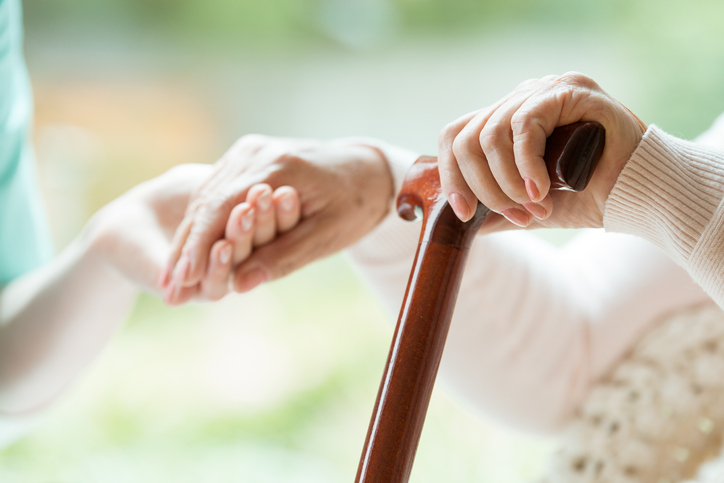Spring brings on showers, but slip and falls are also abundant as temperatures teeter between freeze and thaw. Severe fall injuries and chances of falling increase with age. More than 20% of seniors will experience at least one fall this year, and 50% of falls requiring hospitalization occur in and around the home. Did you know that one-third of seniors who go to long-term care is a consequence of fall injury which is mostly preventable?
Address the most common causes and contributors to falls:
- Slippery floors and walkways (snow, leaves, wet or slick surfaces)
- Trip hazards (rugs, obstacles, narrow pathways, clutter)
- Reaching beyond height without a safety ladder
- Reduced vision (low light, poor sight)
- Poor balance or physical disability
- Dizziness, drowsiness, or inattention
Exercise will address times where preventative measures fail. Building the body’s ability to right itself requires regular strengthening exercises. Several free online exercises can be found and can be completed on your own time or with others – safely distanced with video communication apps. If you have an aging friend or parent, engage them with exercise that is senior-specific. Every movement and step counts.
Always get up slowly to a sitting position before standing. If you are shaky or unstable, use a cane or walker when walking, and always use a handrail when using the stairs. Installing rails in your washroom should be considered, as there are lots of slippery surfaces and an assist to get up is always helpful.
Understand and find the reasons for bouts of dizziness or tiredness, as this is also a contributor to falls. Some medications may make you dizzy, especially when getting up from a prone position.
When taking any new medication, even non-prescription products, ask your pharmacist if it might increase your chance of falling. Always be careful and observe the action that new medication may have on you. Ask your pharmacist about non-prescription products, so you can choose products better suited for you. Get tips about when to take your medication, and how to reduce your risk of falls. If you experience unexpected dizziness or drowsiness with your medication, report it to your doctor and pharmacist.
Some chronic conditions may also increase your risk of falls, such as Parkinson’s, diabetes, heart, and blood pressure-related ailments. Any condition that affects balance will increase your risk.
Should you fall, make sure you are ok to move to a seated position. If you feel tired or dizzy, take extra care, stay seated and call for assistance. Stand only if you are fine and seek medical attention if you suspect your head was knocked. Getting up too quickly only risks more injury. Delaying medical attention can lead to serious consequences, so call a doctor for advice. Your pharmacist is also available, and only a phone call away.




